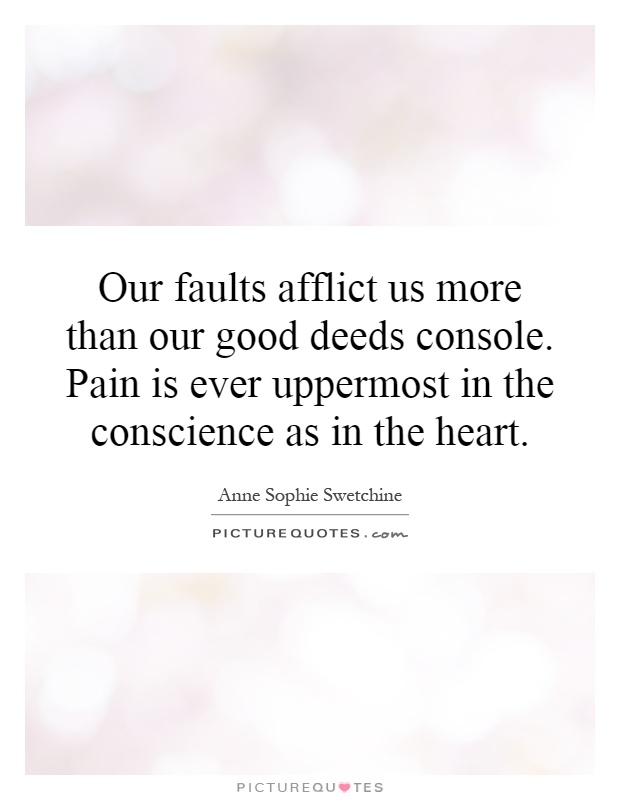Our faults afflict us more than our good deeds console. Pain is ever uppermost in the conscience as in the heart

Our faults afflict us more than our good deeds console. Pain is ever uppermost in the conscience as in the heart
Anne Sophie Swetchine, a Russian-French writer and thinker, was known for her profound insights into human nature and the complexities of the human experience. In her writings, she often delved into the inner workings of the human conscience and the ways in which our faults and shortcomings can weigh heavily on us.The quote, “Our faults afflict us more than our good deeds console. Pain is ever uppermost in the conscience as in the heart,” encapsulates Swetchine’s belief that the negative aspects of our character tend to have a greater impact on us than the positive ones. It speaks to the idea that we are often more acutely aware of our failings and mistakes than we are of our successes and virtues. This tendency to dwell on our faults can lead to feelings of guilt, shame, and self-doubt, which can in turn cause us great emotional pain.
Swetchine understood that the human conscience is a powerful force, capable of both guiding us towards moral behavior and tormenting us with feelings of remorse and regret. She believed that our conscience is constantly at work, reminding us of our missteps and urging us to strive for betterment. This constant inner dialogue can be a source of great suffering, as we grapple with our own imperfections and struggle to reconcile our actions with our ideals.
At the same time, Swetchine recognized that our good deeds have the power to console us and provide us with a sense of purpose and fulfillment. However, she believed that the positive effects of our virtuous actions are often overshadowed by the weight of our faults. This imbalance in our perception of ourselves can lead to a skewed view of our own worth and potential, causing us to underestimate the value of our contributions and accomplishments.












 Friendship Quotes
Friendship Quotes Love Quotes
Love Quotes Life Quotes
Life Quotes Funny Quotes
Funny Quotes Motivational Quotes
Motivational Quotes Inspirational Quotes
Inspirational Quotes